Seeing things that aren’t there can be confusing and frightening, especially if you don’t know why. These occurrences are called visual hallucinations, and they can happen for a variety of reasons. Whether it’s a medication side effect or a sign of mental illness, you should seek help immediately. Your doctor or a mental health professional can help you discover the underlying cause of these hallucinations.
Below you’ll learn more about why you may see things that aren’t there and how Port St. Lucie Hospital can help you recover from hallucinations caused by underlying mental health problems. If you’re feeling scared or like your mind is playing tricks on you, our treatment center provides a safe place for you to take the next step toward getting better.
Contents
Why You May Be Seeing Things That Aren’t There

If you are seeing things that aren’t there, you most likely want to know why. High fevers, intense grief, and stress can cause temporary perception disturbances. This can also occur after the loss of a loved one or another traumatic event. But not everyone who experiences hallucinations has a mental illness. In fact, individuals can experience infrequent or passing hallucinations like those that commonly occur as individuals fall asleep or wake up. However, ongoing hallucinations should be assessed by a doctor or mental health professional.
Mental health conditions such as Lewy body dementia and schizophrenia are the two most common conditions to cause hallucinations. But those with bipolar disorder, borderline personality disorder, and post-traumatic stress disorder are also susceptible to different types of hallucinations. Drug and alcohol use can also cause individuals to see things that aren’t there, which can impact underlying mental health disorder symptoms.
There are clearly many different reasons that you may be seeing things that aren’t there. And in seeking help, it’s important to identify if you’re experiencing hallucinations, delusions, or both.
The Difference Between Hallucinations and Delusions
Hallucinations and delusions are both symptoms of psychosis. This causes them to be closely associated. However, they are different and not always experienced together.
To start, hallucinations are intense sensory perceptions that appear to be real, which can make it difficult to tell the difference between what is real and fake. So if you’re seeing things that aren’t there, then you’re experiencing hallucinations. These false perceptions are created by chemical reactions or abnormalities in the part of your brain where your frontal lobe and sensory cortex communicate.
These two areas deal with cognitive and sensory functions. When something goes wrong between these areas, you can perceive images, sounds, and smells that aren’t there. As a result, visual hallucinations can appear as flashes of light, shapes, faces, animals, and even scenes, which may be referred to as visions.
On the other hand, a delusion is an unshakable belief in something untrue. This can range from something plausible such as a partner cheating to something implausible like acquiring a superpower. Even with strong evidence that delusions are untrue, it can be difficult for people to realize that they’re experiencing a delusion.
What to Do if You Are Seeing Things That Aren’t There
Visual and auditory hallucinations are the most common types of hallucinations that individuals experience. As mentioned, this can be the result of medication side effects, mental illness, drug and alcohol usage, and various other health conditions. Therefore, seeking professional help for an evaluation should be the first step.
If a loved one is seeing things that aren’t there, don’t leave them alone. In severe cases, hallucinations can lead to fear and paranoia. This can cause dangerous actions or behaviors for themselves or others. Stay with them to provide support or assist them in seeking help.
How Do You Know if You Are Hallucinating?
It’s possible to be unaware that you are seeing things that aren’t there. For example, you may hear the voice of a loved one who recently passed. In this case, using context clues can help you tell the difference between a hallucination and reality. Despite hearing their voice, you know it’s impossible. However, individuals with schizophrenia or dementia may have a harder time realizing when they are hallucinating. Thankfully, professional treatment can help manage these symptoms.
How Are Hallucinations Treated?


Although experiencing hallucinations and hearing voices can be disorienting, individuals who experience hallucinations can live productive and meaningful lives with the right long-term treatment. With that said, treatment is dependent on the underlying cause of your hallucinations.
If you’re experiencing hallucinations as a symptom of an underlying mental health condition, there are a variety of treatment options that can prevent or reduce their frequency. For example, different types of therapy are available as part of the Port St. Lucie Hospital adult mental health program. Through these treatment types, you can discover coping mechanisms that help you when you feel scared or paranoid.
Such treatment types available at Port St. Lucie include:
- Cognitive behavioral therapy
- Group therapy
- Family education
- Supplemental therapy
- Medication evaluation and management
Medication can also be beneficial in decreasing the frequency of hallucinations. If medication side effects are causing the hallucinations, your care team can find another medication or adjust the dosage to prevent them from occurring. The specific medication you take will depend on the reason you are experiencing visual hallucinations.
Moreover, if you are seeing things that aren’t there as a result of drug or alcohol use, addiction recovery can help. Port St. Lucie Hospital provides a comprehensive dual diagnosis program that helps adults overcome challenges as a result of mental health conditions and addiction. You may even see things or hear voices due to severe alcohol withdrawal symptoms. If you experience hallucinations during medical detox, you can be treated with medication to calm your nervous system.
Port St. Lucie Hospital provides the highest quality assessment, diagnosis, stabilization, and treatment for adults through our inpatient and partial hospitalization program. All patients receive the support and empathy they need to recover at every level of care.
Where to Seek Help if You Are Seeing Things That Aren’t There
If you are seeing things that aren’t there, it’s time to seek guidance from a mental health professional. At Port St. Lucie, the treatment plans are tailored to meet the needs and recovery goals of every patient. In addition, you will receive the tools you need to overcome short and long-term challenges caused by your mental health condition.
To learn more about how we can help, call our admissions specialists at (772) 238-7734 or fill out a confidential contact form online. Our dedicated staff will be by your side for every step you make in your recovery.



























